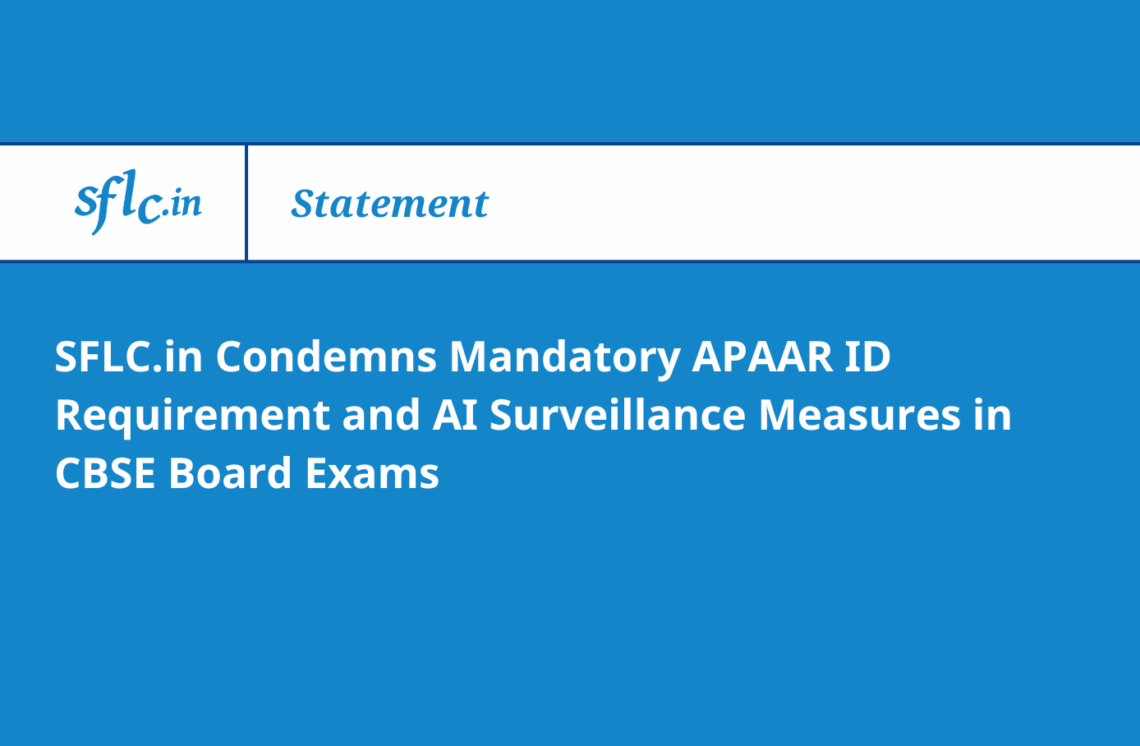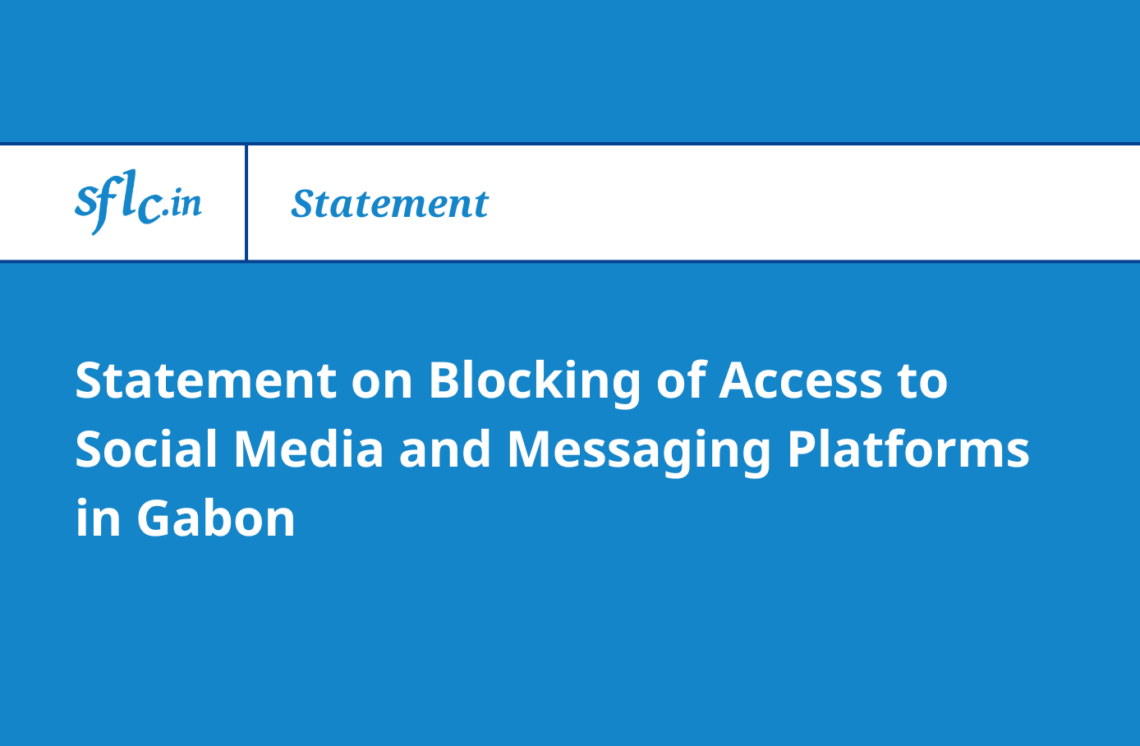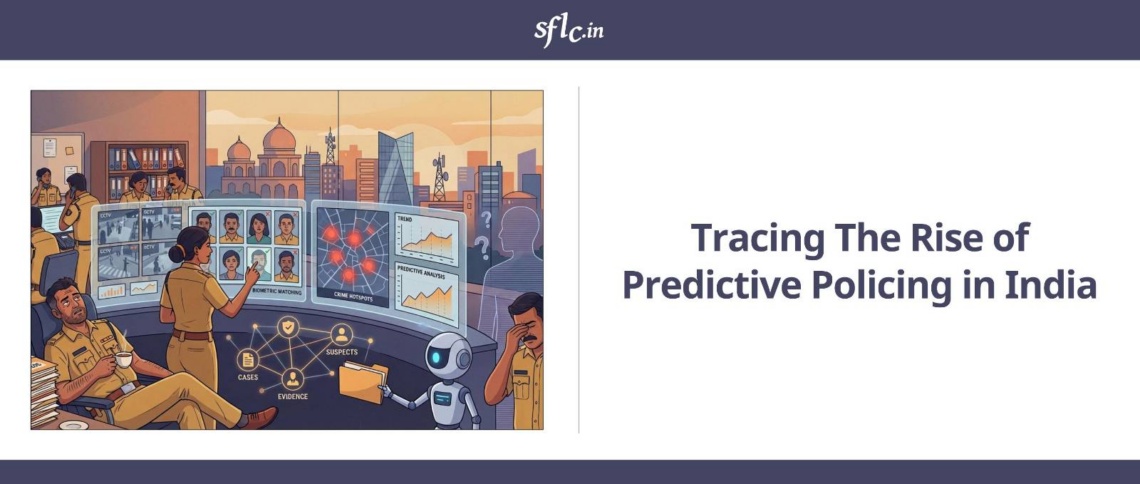SFLC.in condemns the recent decision by the Central Board of Secondary Education (CBSE) to mandate the linkage of Automated Permanent Academic Account Registry (APAAR) ID for students in Classes 9 to 12 for the 2026 board examinations, alongside the introduction of AI powered surveillance infrastructure in educational settings. This move, coupled with an increase in examination fees, will disproportionately affect students from marginalised backgrounds and raises serious constitutional and legal concerns.
Mandating APAAR ID enrolment without a statutory basis or parliamentary approval amounts to executive overreach and violates the fundamental right to privacy recognised in K.S. Puttaswamy v. Union of India (2017). The Supreme Court in this case affirmed that informational privacy is intrinsic to the right to life under Article 21, and any infringement must meet the tests of legality, necessity, and proportionality. The CBSE’s directive fails to satisfy these requirements, as there is no law authorising such mandatory linkage, no demonstrated necessity, and no proportionality in compelling all students to be part of a centralised data system. APAAR, which is centrally linked to Aadhaar, cannot be made mandatory for participation in essential educational processes.
The integration of AI surveillance systems in schools, in the absence of independent oversight or enforceable safeguards, also infringes upon the right to dignity and autonomy of students. Such AI Systems, when coupled with centralised databases like APAAR, have the potential to continuously monitor student behaviour, attendance, facial expressions, and even emotional states through algorithmic analysis. This creates an environment of constant observation, which can have a chilling effect on students’ freedom of expression, participation, and learning. Additionally, the glaring issue of false positives especially during a high pressure environment such as board examinations have the potential of leading to widespread repercussions towards a child and their future. Without transparency on how AI algorithms are trained, what data they process, and how decisions are made, these systems risk embedding bias, producing unfair outcomes, and disproportionately targeting certain groups of students.
Further, the lack of a statutory framework regulating AI in educational contexts means there is no clear prohibition on the use of collected surveillance data for purposes beyond education, such as profiling students. The use of predictive analytics to label students based on their potential or behaviour, in spirit, goes contrary to the fundamentals of the Indian Constitution, which is supported by a catena of judgements that underscore the need for transparency and procedural safeguards when fundamental rights are restricted.
The Supreme Court in Justice K.S. Puttaswamy (Aadhaar) (2018) held that the use of Aadhaar in contexts beyond those sanctioned by law was unconstitutional. The present mandate mirrors the de facto compulsion criticised in that case, transforming an ostensibly voluntary system into a prerequisite for continued admission to school education, which is essential for the development and welfare of children. The Supreme Court in Justice K.S. Puttaswamy (Aadhaar) also held that no child should be denied the right to education, including admission and other facilities for lack of Aadhaar. As Aadhaar is the sole basis for the creation of APAAR ID, restricting students without Aadhaar or APAAR from appearing in examinations directly contradicts the Supreme Court’s ruling.
Further, the opaque nature of the consent process, where students and parents are compelled to agree to broad and undefined uses of personal data, contravenes the principles laid down in Anuradha Bhasin v. Union of India (2020) and PUCL v. Union of India (1997), both of which emphasised transparency, accountability, and the need for procedural safeguards when fundamental rights are restricted.
Our concern stems from research that analyzes how the creation of a centralised surveillance infrastructure in educational spaces affects child development. Experts have argued that deploying surveillance technologies in educational spaces will alter their behavior and curb exploration and self expression. Additionally, it fundamentally alters children’s formative perceptions of trust and responsibility, in a way that results in long lasting consequences on their psychological and personality development. Forcing students into a centralised data system that is linked to Aadhaar and subject to AI monitoring risks misuse, exclusion, and profiling, contrary to the State’s duty to act in the best interests of the child as recognised under the UN Convention on the Rights of the Child, to which India is a party.
SFLC.in calls upon the Government of India and CBSE to immediately withdraw the mandatory APAAR ID requirement for board examinations, halt the deployment of AI surveillance in schools, and ensure that any technological interventions in education are implemented only after pursuing public consultation and parliamentary scrutiny in an exhaustive and transparent manner, resulting in the enactment of a robust legal framework that safeguards children’s right to privacy and education.




